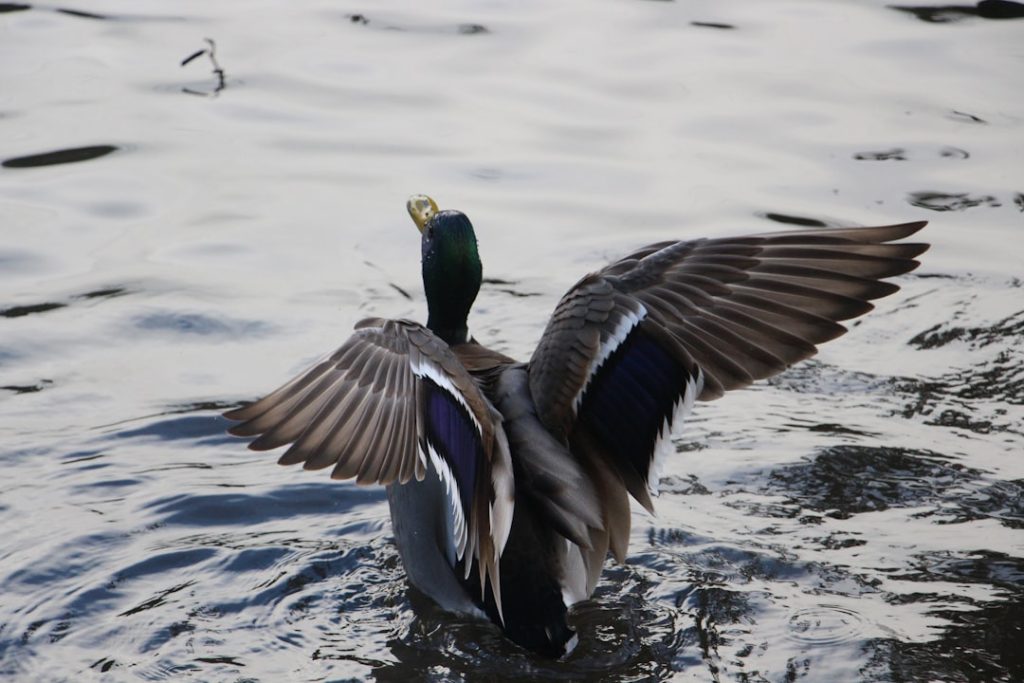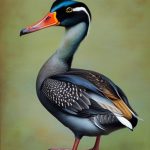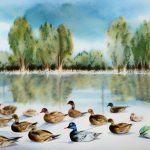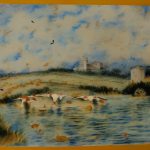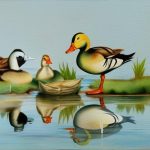Garden duck breeds are a popular choice for many backyard and small-scale farmers. These ducks are known for their friendly nature, adaptability, and ability to forage for food. They are also excellent at controlling pests and providing fertilizer for gardens. There are many different breeds of garden ducks, each with its own unique characteristics and benefits. Whether you are looking for a duck that is good for egg production, meat, or simply as a pet, there is a breed that will suit your needs.
Garden ducks are also a great addition to any homestead or small farm. They are relatively low maintenance and can provide a sustainable source of eggs and meat. Additionally, they can help control pests in the garden and provide natural fertilizer. With the right care and attention, garden ducks can thrive in a variety of environments and provide a valuable addition to any small-scale farming operation.
Table of Contents
Key Takeaways
- Garden duck breeds are popular for their ability to control pests, provide fertilizer, and entertain with their quirky personalities.
- Popular garden duck breeds include the Indian Runner, Khaki Campbell, and Pekin ducks, each with their own unique characteristics and benefits.
- Garden duck breeds are known for their hardiness, adaptability, and ability to forage for food, making them low-maintenance pets for gardeners.
- Keeping garden duck breeds can provide benefits such as natural pest control, weed management, and nutrient-rich fertilizer for gardens.
- Considerations for keeping garden duck breeds include providing adequate space, shelter, and protection from predators, as well as ensuring access to clean water and a balanced diet.
Popular Garden Duck Breeds
1. Pekin Ducks: Pekin ducks are one of the most popular breeds for backyard farming. They are known for their large size, white feathers, and friendly disposition. Pekin ducks are excellent egg layers and can also be raised for meat. They are easy to care for and do well in a variety of climates.
2. Khaki Campbell Ducks: Khaki Campbell ducks are prized for their exceptional egg-laying abilities. They are known to lay upwards of 300 eggs per year, making them a popular choice for those looking to raise ducks for eggs. They have a khaki-colored plumage and are known for their active and curious nature.
3. Indian Runner Ducks: Indian Runner ducks are known for their upright posture and distinctive appearance. They are excellent foragers and can help control pests in the garden. Indian Runners come in a variety of colors and are known for their high egg production.
4. Rouen Ducks: Rouen ducks are a domesticated breed that closely resembles the wild Mallard duck. They are known for their beautiful plumage and calm demeanor. Rouen ducks are good layers and can also be raised for meat.
5. Muscovy Ducks: Muscovy ducks are a unique breed known for their distinctive red facial caruncles. They are excellent foragers and can help control pests in the garden. Muscovy ducks are also known for their lean and flavorful meat.
Characteristics of Garden Duck Breeds
Garden duck breeds come in a wide variety of sizes, colors, and temperaments. Some breeds, like the Pekin duck, are known for their large size and excellent meat production. Others, like the Khaki Campbell, are prized for their exceptional egg-laying abilities. Some breeds, like the Indian Runner, have a distinctive upright posture and are excellent foragers. Each breed has its own unique characteristics and benefits, making it important to research and choose the breed that best suits your needs and environment.
In addition to their practical uses, garden duck breeds also have distinct physical characteristics that make them unique and attractive. From the striking white feathers of the Pekin duck to the colorful plumage of the Rouen duck, each breed has its own aesthetic appeal. Some breeds, like the Muscovy duck, have distinctive facial caruncles that set them apart from other breeds. Understanding the physical characteristics of each breed can help you choose the right ducks for your farm or homestead.
Benefits of Keeping Garden Duck Breeds
There are numerous benefits to keeping garden duck breeds on your farm or homestead. One of the primary benefits is their ability to control pests in the garden. Ducks are natural foragers and will happily eat insects, slugs, and other pests that can damage crops. This can help reduce the need for chemical pesticides and promote a healthier garden ecosystem.
Another benefit of keeping garden duck breeds is their ability to provide a sustainable source of eggs and meat. Many breeds, such as the Khaki Campbell and Pekin ducks, are excellent egg layers and can provide a steady supply of nutritious eggs. Additionally, ducks like the Muscovy and Rouen breeds are prized for their flavorful meat, making them a valuable addition to any small-scale farming operation.
Furthermore, garden ducks can also provide natural fertilizer for your garden or farm. Their manure is rich in nutrients and can help improve soil fertility, leading to healthier plants and higher yields. This natural fertilizer can reduce the need for synthetic fertilizers, making it an environmentally friendly choice for gardeners and farmers.
Considerations for Keeping Garden Duck Breeds
While there are many benefits to keeping garden duck breeds, there are also important considerations to keep in mind before bringing ducks onto your farm or homestead. Ducks require access to water for drinking, bathing, and foraging. It’s important to provide a clean water source that is free from contaminants and predators.
Additionally, ducks need shelter to protect them from predators and inclement weather. A secure coop or shelter is essential to keep ducks safe at night and during extreme weather conditions. It’s important to consider the space requirements for your chosen breed of ducks and ensure they have enough room to roam and forage.
Another consideration is predator protection. Ducks are vulnerable to predators such as foxes, raccoons, and birds of prey. It’s important to implement predator-proof fencing and housing to keep your ducks safe from harm.
Caring for Garden Duck Breeds
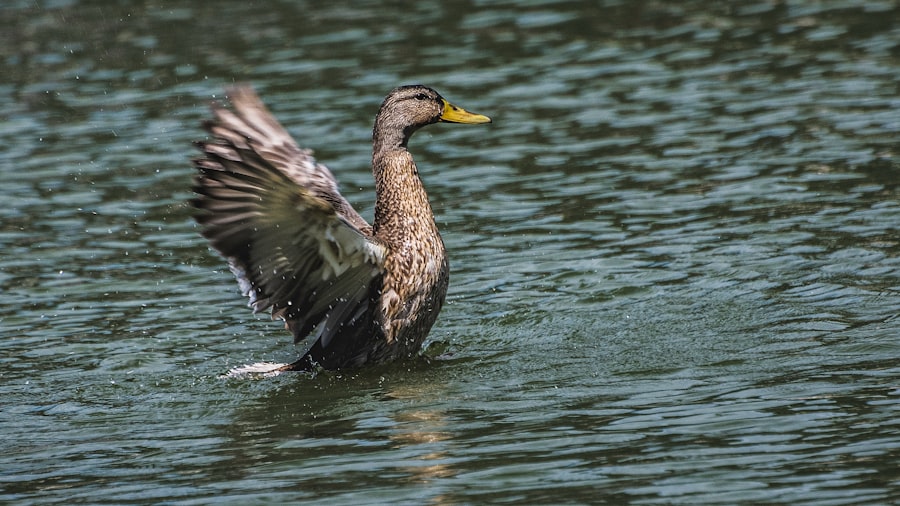
Caring for garden duck breeds requires attention to their basic needs such as food, water, shelter, and healthcare. Ducks require a balanced diet that includes commercial feed as well as access to fresh water and foraging opportunities. It’s important to provide a diet that meets their nutritional needs and promotes good health.
In addition to food and water, ducks also need shelter that protects them from predators and extreme weather conditions. A secure coop or shelter is essential to keep ducks safe at night and during inclement weather.
Regular healthcare is also important for maintaining the health and well-being of garden duck breeds. This includes regular check-ups with a veterinarian, vaccinations, parasite control, and prompt treatment of any injuries or illnesses.
Furthermore, providing enrichment activities such as access to water for swimming, foraging opportunities, and social interaction with other ducks can help promote their physical and mental well-being.
Conclusion and Further Resources
In conclusion, garden duck breeds are a valuable addition to any small-scale farming operation or homestead. They provide numerous benefits such as pest control, sustainable egg and meat production, and natural fertilizer for gardens. However, it’s important to carefully consider the specific needs of each breed and ensure that you can provide the necessary care and resources before bringing ducks onto your farm or homestead.
For further resources on raising garden duck breeds, there are many books, online forums, and local agricultural extension offices that can provide valuable information on breed selection, care requirements, housing design, healthcare, and more. Additionally, connecting with other duck enthusiasts through local poultry clubs or online communities can provide valuable support and advice for raising healthy and happy garden duck breeds on your farm or homestead.
If you’re interested in learning more about raising ducks in your garden, you might also want to check out this insightful article on PoultryWizard about the importance of providing a coop for turkeys. Understanding the housing needs of different poultry breeds can help you create a safe and comfortable environment for your feathered friends. Check it out here!
FAQs
What are garden duck breeds?
Garden duck breeds are domesticated duck breeds that are commonly kept in backyard gardens or small farms for their eggs, meat, pest control, and ornamental purposes.
What are some popular garden duck breeds?
Some popular garden duck breeds include the Indian Runner, Khaki Campbell, Pekin, Rouen, and Swedish Blue. These breeds are known for their adaptability to various environments and their ability to thrive in a garden setting.
What are the characteristics of garden duck breeds?
Garden duck breeds are typically smaller in size compared to traditional meat breeds. They are known for their friendly and docile nature, making them suitable for backyard environments. These breeds also have good foraging abilities and are excellent at controlling garden pests.
What are the benefits of keeping garden duck breeds?
Keeping garden duck breeds can provide a sustainable source of eggs and meat for the household. Additionally, they can help control pests in the garden, such as slugs and snails. Their presence also adds a charming and picturesque element to the garden.
How should garden duck breeds be cared for?
Garden duck breeds require access to clean water for swimming and drinking, a balanced diet of commercial duck feed and fresh greens, and a safe and secure shelter to protect them from predators. Regular health checks and proper grooming are also essential for their well-being.
Meet Walter, the feathered-friend fanatic of Florida! Nestled in the sunshine state, Walter struts through life with his feathered companions, clucking his way to happiness. With a coop that’s fancier than a five-star hotel, he’s the Don Juan of the chicken world. When he’s not teaching his hens to do the cha-cha, you’ll find him in a heated debate with his prized rooster, Sir Clucks-a-Lot. Walter’s poultry passion is no yolk; he’s the sunny-side-up guy you never knew you needed in your flock of friends!

